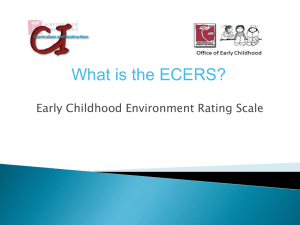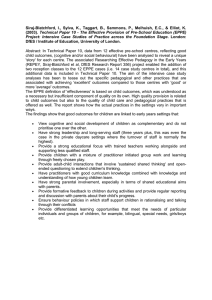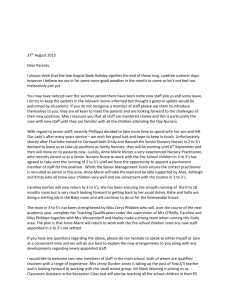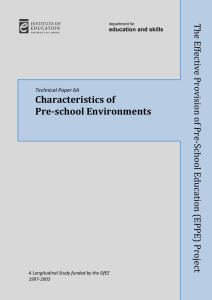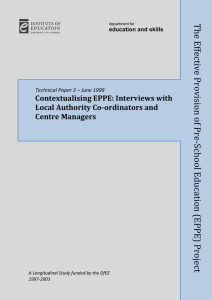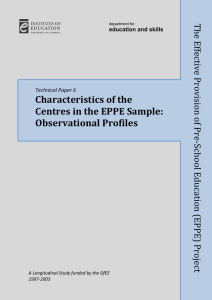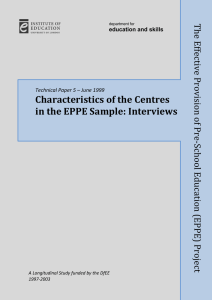Sylva, K., Siraj-Blatchford, I., Melhuish, ... Technical
advertisement
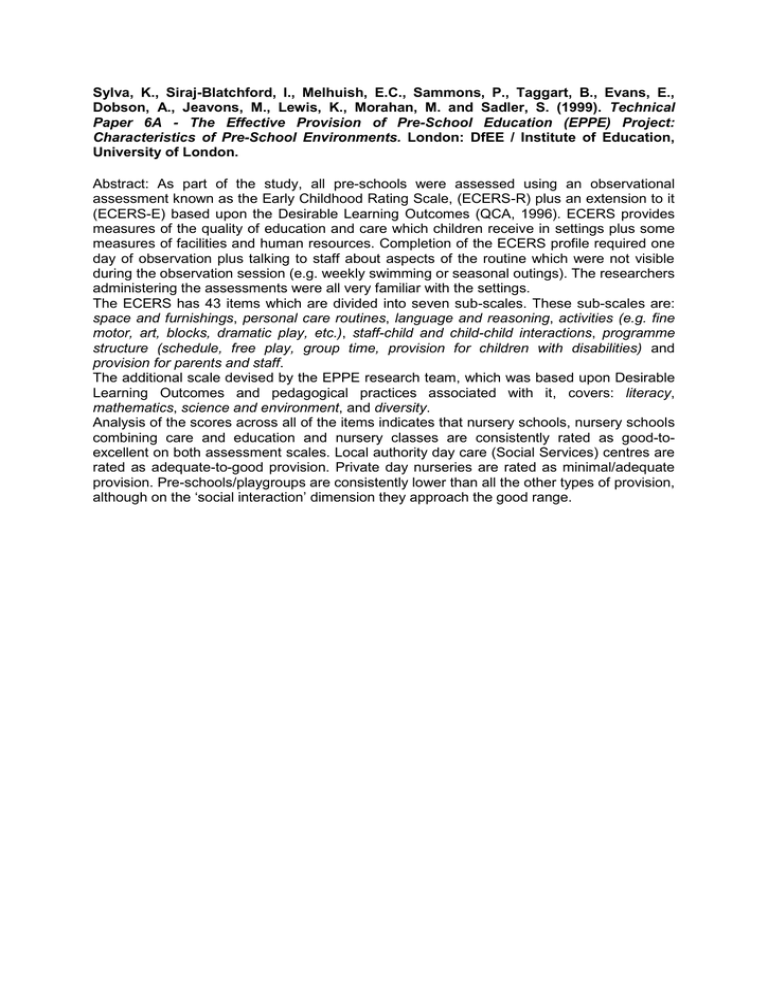
Sylva, K., Siraj-Blatchford, I., Melhuish, E.C., Sammons, P., Taggart, B., Evans, E., Dobson, A., Jeavons, M., Lewis, K., Morahan, M. and Sadler, S. (1999). Technical Paper 6A - The Effective Provision of Pre-School Education (EPPE) Project: Characteristics of Pre-School Environments. London: DfEE / Institute of Education, University of London. Abstract: As part of the study, all pre-schools were assessed using an observational assessment known as the Early Childhood Rating Scale, (ECERS-R) plus an extension to it (ECERS-E) based upon the Desirable Learning Outcomes (QCA, 1996). ECERS provides measures of the quality of education and care which children receive in settings plus some measures of facilities and human resources. Completion of the ECERS profile required one day of observation plus talking to staff about aspects of the routine which were not visible during the observation session (e.g. weekly swimming or seasonal outings). The researchers administering the assessments were all very familiar with the settings. The ECERS has 43 items which are divided into seven sub-scales. These sub-scales are: space and furnishings, personal care routines, language and reasoning, activities (e.g. fine motor, art, blocks, dramatic play, etc.), staff-child and child-child interactions, programme structure (schedule, free play, group time, provision for children with disabilities) and provision for parents and staff. The additional scale devised by the EPPE research team, which was based upon Desirable Learning Outcomes and pedagogical practices associated with it, covers: literacy, mathematics, science and environment, and diversity. Analysis of the scores across all of the items indicates that nursery schools, nursery schools combining care and education and nursery classes are consistently rated as good-toexcellent on both assessment scales. Local authority day care (Social Services) centres are rated as adequate-to-good provision. Private day nurseries are rated as minimal/adequate provision. Pre-schools/playgroups are consistently lower than all the other types of provision, although on the ‘social interaction’ dimension they approach the good range.
